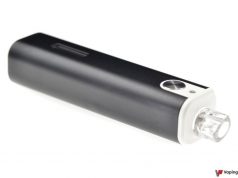Vaping health risks “unlikely” says major new review
A new review of the science on e-cigarettes has found that normal, regular use of vapour products is unlikely to cause significant health concerns. The study, carried out at a leading Italian research centre, conformed earlier papers that say switching to vaping has huge health benefits – and it also criticised poor and inaccurate reporting that, the authors say, has misled the public about how safe vaping is.
The study was led by Dr Riccardo Polosa, an acknowledged expert on tobacco harm reduction, and the results have just been published in the journal Expert Review of Respiratory Medicine. Polosa says switching is “a very good option” and “No-one can prove that e-cigarettes are one hundred percent safe, but all the science points to vaping being very much safer than smoking.”
According to Polosa, despite e-cigarettes being at least 95% safer than smoking, public knowledge of the risks has become distorted. The number of adults who know vaping is a safe alternative is actually falling, thanks to sloppy journalism and hysterical claims by anti-vaping activists. Polosa hopes better communication will inform smokers about how to avoid almost all the health risks they face.
Vaping group sues US government to delay review
Vapers in the USA have been facing a tidal wave of legal and political attacks recently, with the FDA’s move to accelerate the licensing of products the most serious threat. Now harm reduction advocates are fighting back. An industry group filed a lawsuit on Wednesday that could force the FDA to give businesses more time to meet the complex and expensive paperwork requirements.
Under the FDA’s notorious “deeming regulations” all vapour products will need a Pre Market Tobacco Authorisation to be legally sold in the USA. The application for this usually runs to several thousand pages and it’s also very expensive, so small businesses – most e-liquid makers, for example – need time if they’re going to complete their applications and stay in business.
The Vapor Technology Association says the current deadline of 11 May 2020 – brought forward from 2022 after the FDA was sued by a group of anti-vaping activists – doesn’t give small companies enough time and will cause a wave of business closures. Now the VTA wants a court to rule that the 2022 deadline has to stand, to protect businesses and the millions of American former smokers who need access to safer products. VTA director Tony Abboud said, “It is time for FDA to stop moving the goalposts and changing the rules in the middle of the game to the detriment of our manufacturers and small businesses.”
JUUL Labs hit by class action lawsuit in West Virginia
A major e-cigarette company is being sued in West Virginia by a group of parents who claim the company’s marketing deliberately targets teenagers. Lawyers for the accusers have made a series of alarming claims about JUUL Labs’s advertising and product design, in an apparent bid to get a big payout from the leading brand.
According to the suit, filed in the US District Court for West Virginia’s Southern District, JUUL’s marketing strategy – starting with what their products look like – was specifically designed to appeal to children. In fact JUUL have always used adults in their advertising, have never produced pods in the so-called “child-friendly candy flavours” that excite harm reduction opponents so much, and despite what the West Virginia plaintiffs are saying, their e-cigs don’t actually look much like a USB stick – they don’t even have a USB connector.
JUUL Labs released a statement that ended, “We do not want non-nicotine users, especially youth, to ever try our product. To this end, we have launched an aggressive action plan to combat underage use as it is antithetical to our mission. To the extent this case alleges otherwise, it is without merit and we will defend our mission throughout this process.”
Mormons update rules to ban vaping
The Mormon church – the Church of Jesus Christ of Latter-day Saints – has added green tea, fancy coffee and vaping to the extensive list of nice things its members aren’t allowed to have. A new version of the “Words of Wisdom”, the rules Mormons have to follow to be allowed to attend their temples, extends the church’s 19th century list of forbidden luxuries to take in some newer products.
Mormonism, founded in the 1820s by convicted fraudster Joseph Smith Jr, bans its members from the consumption of hot drinks – usually interpreted to mean tea and coffee – and tobacco. Now a rambling article in church magazine New Era explains that you can’t drink iced tea because it’s still tea (even though it isn’t hot) and you can’t vape (even though no tobacco is involved).








